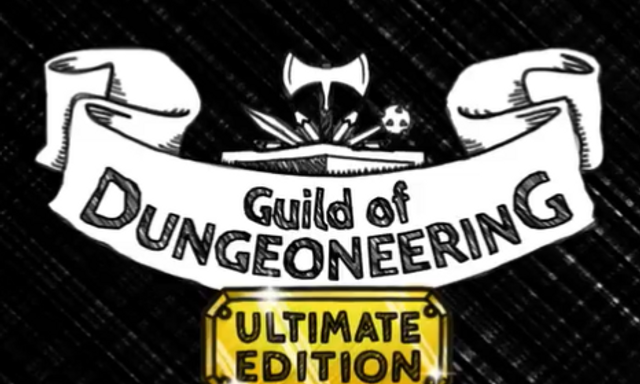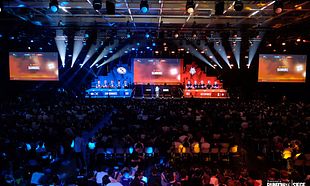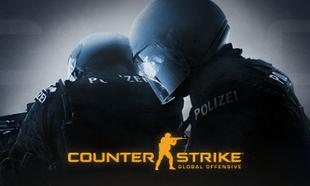For such a small country, Ireland has contributed an awful lot to the video game industry. The Havok game engine that powers 'Doom Eternal' and 'Animal Crossing' is an Irish creation, 'No Man's Sky' director Sean Murray hails from Waterford, and 90s gaming icon Earthworm Jim is the brainchild of Lisburn man David Perry.
What is lesser known about the Irish gaming industry is that it boasts a robust indie gaming scene.
We talked to Colm Larkin, Founder and Director at Gambrinous, about life as an indie developer, what goes into making a game and getting published on Steam.
The Long Crawl
Gambrinous is known for their 2015 game 'Guild Of Dungeoneering', a turn-based dungeon crawler.
Asked to give a one-sentence pitch of his game, Larkin said the game is "a dungeon crawler where you don’t control the hero - instead, you build the dungeon around them!"
The game has been one of Ireland's gaming success stories since its launch in 2015, with the game available on PC, iOS and Android devices.
Larkin says he caught the gaming bug in the ZX Spectrum era.
"I’ve been interested in making games since our family got a ZX Spectrum in the 80s. Game magazines at the time came with pages of BASIC code you could type in to make your own games. I think that gave me the bug."
"Later in life, I studied Computer Science in university and worked in tech but not games."
"I made a few games on the side, mostly rough prototypes from game jams. One of these felt promising and I decided to spend another 3 months on it and make it a ‘real game’".
That 'real game' wound up being 'Guild of Dungeoneering'.
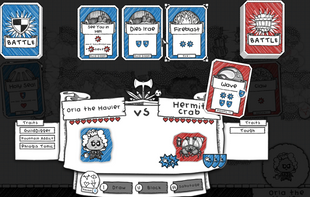
The game was released in 2015 and Larkin learned a lesson from the success of 'Minecraft'.
"I formed a limited company (Gambrinous) in case it was successful. I remember around 2010 when 'Minecraft' absolutely blew up its creator ended up paying a massive amount of income tax that first year because there was no company," he revealed.
'Guild of Dungeoneering' is influenced by tabletop & board games, with Larkin adding "the original idea for the game came from playing a Games Workshop game called 'DungeonQuest' with my siblings in the 90s. You placed square tiles that connected up to each other like the rooms in 'Guild of Dungeoneering'.
"More recently the board game 'Carcassonne' also features tiles you need to connect to each other", adding "those were definitely a kicking off point for the tile-laying side of the game."
Industry Baby
The original 'Guild of Dungeoneering' was released in 2015, and this week sees the release of the Ultimate Edition, with all of the games DLC added in.
6 years is a long time in any industry, let alone gaming, but Larkin says there have been major changes in the time since the game first came out.
"Even when we launched in 2015 game platforms were becoming quite crowded - lots more games were being released each passing year. This means each year it’s much harder to stand out and reach an audience - it’s certainly much harder in 2021 than it was in 2015"
"On Steam alone, there were 2,800 games released in 2015 and 10,000 released in 2020."
Ever since Steam launched in September 2003, it has been a springboard to success for smaller developers like Gambrinous.
"Steam has been very good for us and certainly is the easiest path for a smaller studio to be able to self publish digitally. Back before 2013 games like mine basically couldn’t get onto Steam despite it being the best place for PC gamers to buy digital games. Luckily they opened it up in time for Guild’s first release."
"Nowadays you simply pay them $100 and you can list a new game on the store."
Larkin also revealed that his studio is also working on console releases for Ultimate Edition.
"Console platforms have also become more viable for self-publishing, though they are a little more work than releasing on Steam."
Gambrinous' most recent game, 2020's 'Cardpocalypse' saw a release on all major gaming consoles including the PlayStation 4, Xbox One and the Nintendo Switch.
"We are trying to build our own brand and have a direct link to our fans in the hopes of being able to cut through that in future," he added.
The gaming industry in Ireland is growing but a sense of community and camaraderie among developers is apparent.
Larkin remarked, "instead of rivalry we seem to all be cheering one another on, and I love it!"
"I remember around 2013 or so there didn’t seem to be much of an industry here, but it has grown and grown in the years since then. Now there are quite a few game companies around Ireland ranging from small to midsized, and Irish games are doing really well internationally."
"Pre-Covid there were regular meetups in Dublin and Galway that encouraged creators to bring along a prototype and get feedback. This was huge for me in the early days of making my first game"
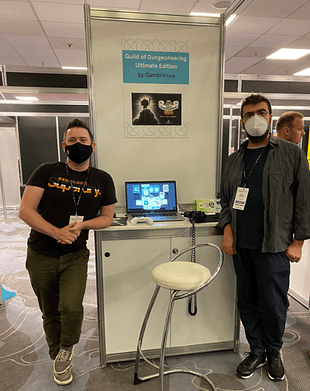
As many people turned to video games during the Covid-19 era, video game developers had to adapt, and Gambrinous were no exception.
By Larkin's own admission, the small team of five were already "working 80% from home" with the staff working from home Monday to Thursday and Friday used as an "office day".
"I rented a meeting room and we all sat around one table. That was our day of meetings, playtesting, planning, and of course a bit of social contact by all having lunch together and hanging out. For me at least, it was a really great combination" Larkin said.
"We are 5 full-time employees including myself and my co-director Fred Mangan (also the artist on all our games). It’s really nice at this size as everyone’s contribution is very important."
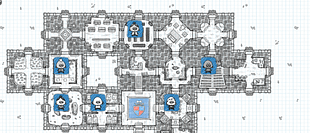
The notion of "crunch" and horror stories about employee burnout are ripe in the industry, and this is something Larkin is keen to tackle, especially in the light of the pandemic.
"The pandemic has been "a been a difficult time for everyone," Larkin admits, but he said, "we’ve tried to not push ourselves too hard and allow for extra time when needed."
Being able to adapt to extra time is one of the undisputed advantages of being an independent games developer; at the other end of the scale, Rockstar's 2018 blockbuster 'Red Dead Redemption 2' had staff working around 100 hours a week to get the game ready in the weeks before launch.
Another advantage of being an independent developer? Artistic freedom.
"I think indie studios can take more risks in terms of the genre of game they create," Larkin said.
"We can target markets that look too small for a publisher making games with a team of hundreds or thousands of developers, they need to sell millions of copies to break even and as such, they tend to stick to core genres."
"As such, most of the huge breakouts that essentially create new genres of games seem to come from indies," alluding to the likes of 'Minecraft' which resulted in essentially every triple AAA game of the 2010's implementing a crafting system, or 'The Binding Of Isaac' which made the 'roguelike' genre so popular.
The spirit of indie game developers is similar to that of a musician or a filmmaker; it requires persistence, talent, patience, and a bit of luck.
As Eoin proves, it's never too late to start.
"I started making games on the sides in my early 30s and I was 35 when 'Guild' was first released,' Colm says.
'Guild of Dungeoneering: Ultimate Edition' will be released on Thursday, November 18th.
